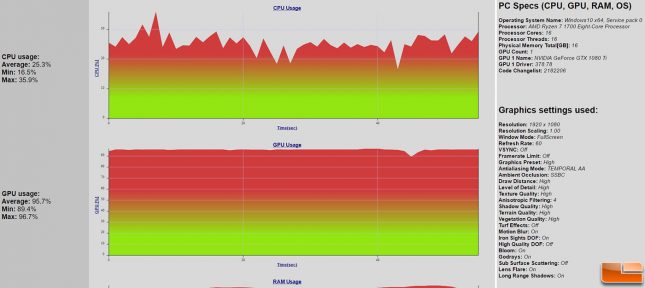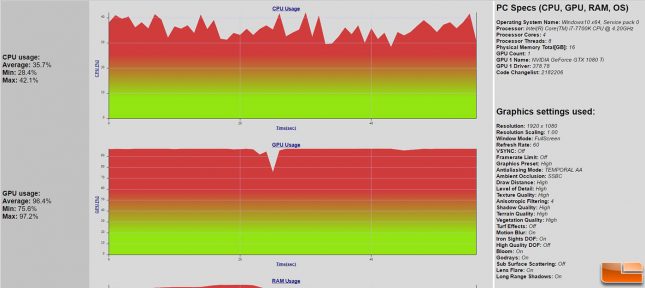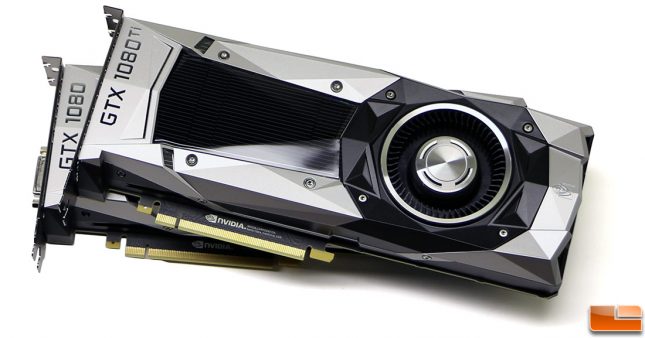CPU Bottleneck? GeForce GTX 1080 Ti Tested on AMD Ryzen versus Intel Kaby Lake
Final Thoughts & Conclusions
The new NVIDIA GeForce GTX 1080 Ti Founders Edition graphics card is without a doubt a beast, but you can certainly see that the processor you pick for your desktop gaming PC will play a big role in how the new graphics card performs on 1080P and 1440P display setups. A stock Intel Core i7-7700K processor was able to offer superior gaming performance over the overclocked AMD Ryzen 7 1700 processor. In fact, when it came to 1080P gaming performance the NVIDIA GeForce GTX 1080 Ti was found to be an average of 29.6% faster on the Intel platform on the five game titles we took a look at. The 1440P scores also showed that the average frame rate was 16.6% higher on the Intel platform, so when it comes to 1080P or 1440P gaming performance the Intel Core i7-7700K and NVIDIA GeForce GTX 1080 Ti pair together nicely.
That said, the vast majority of people buying the NVIDIA GeForce GTX 1080 Ti ($699) will likely be gaming at 1440P or higher due to the price point on this new card. AMD also has some work to do with regards to optimizations for Ryzen and promises that some improvements will be coming soon. The NVIDIA GeForce GTX 1080 Ti appears to still be GPU bottlenecked at 4K gaming, but this card is so fast that we are starting to see signs that the CPU is now actually bottlenecking performance at 1440P and lower resolutions. Seeing virtually no average frame rate increase in GTA V on the Ryzen 7 1700 with the GeForce GTX 1080 Ti at 1440P was a bit of a shock, but the numbers don’t lie. The NVIDIA GeForce GTX 1080 has had its priced slashed with the release of the new Ti version, so you can pickup a card like the EVGA GeForce GTX 1080 Gaming for just $499 now.
The NVIDIA GeForce GTX 1080 Ti so far feels like it is a great 4K gaming graphics card and we think that by doing this article it has helped us setup our new video card test bench test suite and the image quality settings we’ll be using there. Hopefully you enjoyed our quick look at Ryzen versus Kaby Lake with performance scaling by going from the GeForce GTX 1080 to the GeForce GTX 1080 Ti!
Leave us some feedback below and we’ll have our full review on the GeForce GTX 1080 Ti in the weeks ahead!
Update 3/14/2017:
A few people have been asking about CPU utilization and how AMD basically is using less and that will allow for them to do more things while gaming and possibly unlock more game performance once optimizations ever arrive. That could be true, but the Intel Core i7 7700K isn’t at full load in most game titles. Take a look at these results from Ghost Recon: Wildlands, which is the most recent game title in our test suite and it came out this month.

The AMD Ryzen 7 1700 overclocked to 4GHz averaged 25.3% CPU usage on the 16 available threads and peaked at 35.9%.

The Intel Core i7-7700K averaged 35.7% CPU usage with just 8 available threads and peaked at 42.1% usage, which shows that over half the processor isn’t being used.
More AMD Ryzen Coverage on Legit Reviews:
AMD Ryzen 7 1800X, 1700X and 1700 Processor Reviews
AMD Ryzen 7 1700 Processor Overclocking
AMD Ryzen 7 DDR4 Memory Scaling Performance
Picking The Right AMD AM4 Motherboard For Ryzen
Where are all the AMD AM4 Motherboads?

